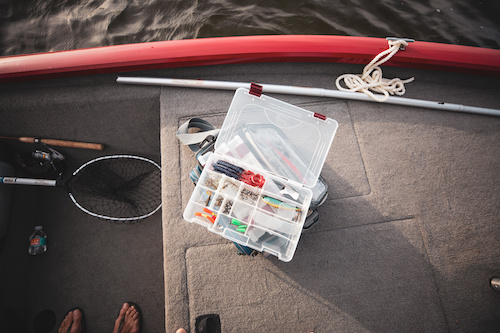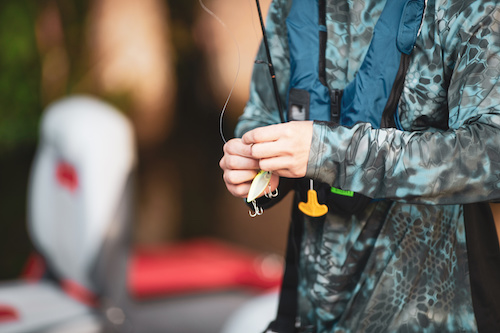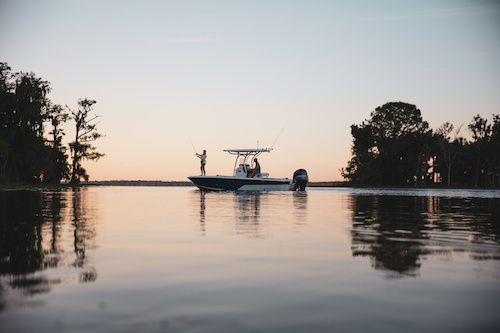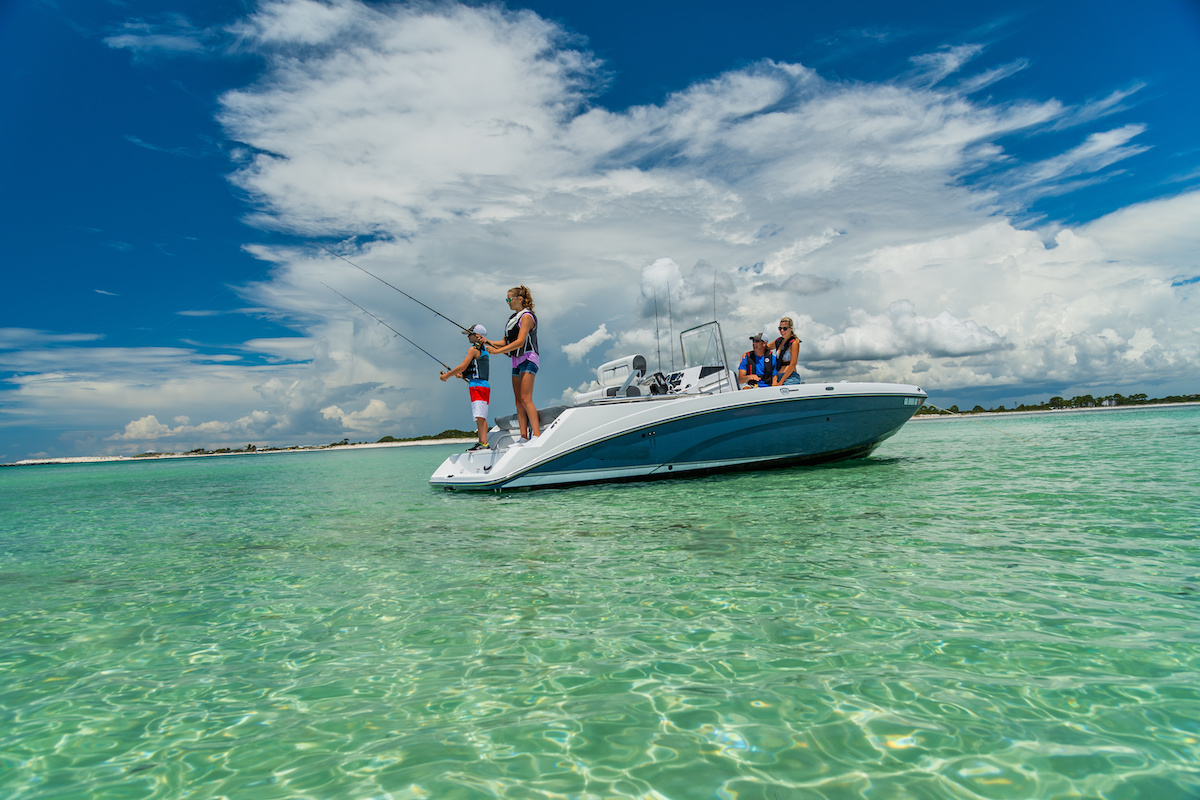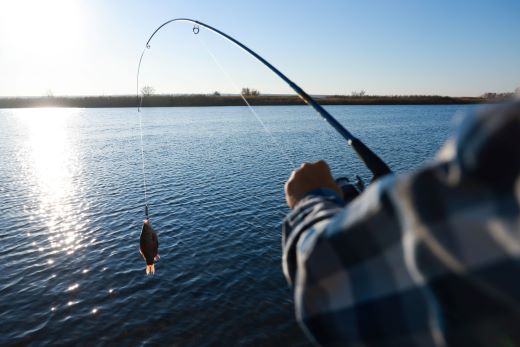Whether you're new to freshwater or saltwater fishing, these basic tips are essential for all beginners. Ready to catch more fish and have more fun? Remember these top fishing tips, and you'll be well on your way.
10 Tips on How to Fish for Beginners
- Match your lure to the water color.
- Choose your lure shapes and sizes that let you "match the hatch."
- Get fishing gear that appropriately size to the fish you're pursuing.
- If you are trolling, make sure your lures are swimming in a lifelike manner.
- Choose your fishing line wisely.
- Fish early, and fish late.
- Be conscious of the tides and currents.
- Always use new hooks and/or sharpen your old hooks.
- Use a scale to set your reel's drag.
- Do your pre-fishing research.
Explore All-Purpose Fishing Boats
1. Fishing Lure Colors
Match your lure color to the water. While it's important to experiment with different colors if you're not catching anything, a general rule is to choose lures that match the water's hue:
- In green water, use lime or chartreuse lures.
- In clear water, opt for white or pearl lures.
- In tannic-stained water, root beer lures are often effective.
2. Fishing Lure Shapes & Sizes
Choose lure shapes and sizes that "match the hatch." When predators feed on small, thin fish like anchovies, a similarly shaped and sized spoon can be highly effective, while a larger, wider lure might be ignored. Focus on matching the profile and length of the prevailing bait, as fish often focus on these features and overlook other options.
3. The Right Size Fishing Gear
Choose fishing gear sized for the specific fish you're targeting rather than relying on one-size-fits-all rods and reels. The 12-pound-class casting reel you love for bass is too heavy for the tiny jigs and spinners that black crappie prefer, while a four-pound-class ultralight rod suited for crappie can't handle a big largemouth bass. Middle-of-the-road gear won't be adequate for either. Invest in gear that matches the species you're pursuing.
Saltwater Fishing Gear: 10 Essentials for Anglers
4. Trolling
When trolling (slowly motoring while towing lures), hold your lures next to the boat to ensure they swim lifelike before deploying the lines. If they appear lethargic, increase your speed; if they seem spastic, slow down. This helps you find the ideal boat speed and ensures your lures aren't fouled, damaged, or swimming improperly.
5. Fishing Line
With countless types and brands of fishing lines available, it's essential to choose wisely. Braided lines offer high sensitivity and strong hook-setting power, making them ideal for lure fishing. On the other hand, monofilament lines have less sensitivity and some stretch, making them perfect for when fish are nibbling on bait.
6. Best Time of the Day for Fishing
Fish early and late, as many species bite best at dawn and dusk when the light is low. Cloud cover can improve mid-day fishing, while direct sunlight drives fish to seek shade, especially in summer. In hot, sunny conditions, target shaded areas, as fish become more active when it's cooler.
Best Time to Go Fishing: Saltwater & Freshwater Guide
7. Tides & Currents
When saltwater fishing, consider tides and currents along with the time of day. The ebb and flow of tides significantly influence how, when, and where saltwater fish feed.
Read Next: What Every Boater Should Know About Tides
8. Sharp Hooks
Always use new hooks or sharpen your old ones. It might seem like common sense, but many people go fishing with old, dull hooks. Will they catch some fish? Perhaps. But they'd likely catch many more if each hook was sharpened correctly.
9. Reel Drag
Use a scale to set your reel's drag. The drag system allows a fish to take line instead of pulling against it until it breaks, so correctly setting it is crucial. Many anglers tug on the line until it "feels right," but this is less reliable than using a hand scale. The ideal setting is to adjust the drag to one-third of the line's rated breaking strength.
10. Do Your Research
Do your pre-fishing research. Different fishing methods come with nuances, and numerous tips and tricks are tailored to specific species or techniques. Explore articles on fishing tips to deepen your knowledge and enhance your approach.
Read Next: How to Buy a Fishing Boat
